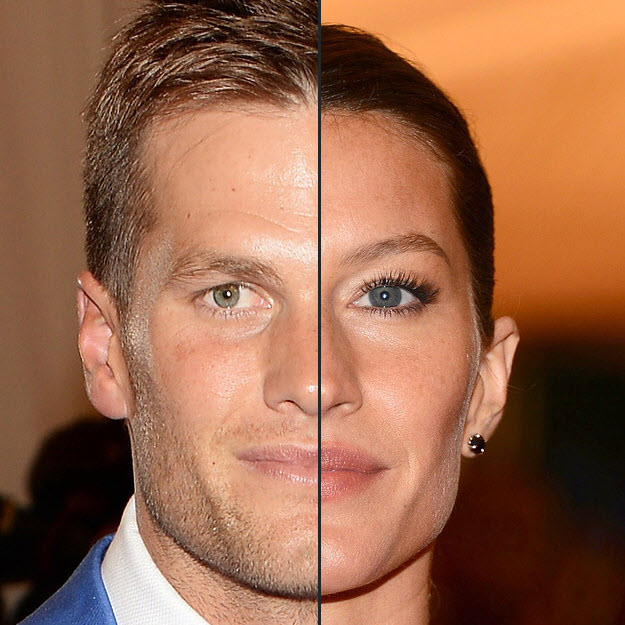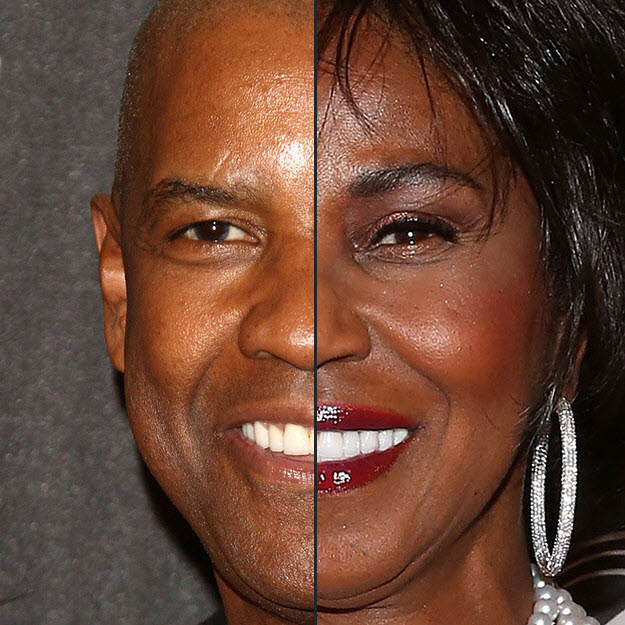You've probably seen it before--two elderly people walking hand in hand down the street or sitting at a café, resembling each other so strongly that they could be siblings. When looking at two people who are so completely in love, you probably notice that they look quite a bit alike. Do these couples actually look alike, and if so, what's caused them to develop this way? The question is often posed when referring to happy couples. According to psychologists, there is a completely relatable reason for why this happens.
Why Do Couples Look Alike?
According to some psychological studies, the more time couples spend together, the more likely they are to look similar to each other as their behaviors and style can “rub off” on each other. The concept is referred to as the convergence of appearance. Some of the reasons behind the answer to why do couples look alike are as follows:
1. You Look Like Each Other to Begin With
Most individuals already find different traits about themselves attractive. As such, when we are looking for a partner, we are also looking for those similar features which we find attractive. This can vary from person to person, depending on what you are looking for in a companion. A few examples and reasoning behind these phenomena are:
- Body Appearance. You have probably noticed that the size and shape of couples is often similar. This is because our brain associates with symmetrical features and tells us that this person is a “good choice”. This is also why we find couples where there are stark differences in the body-types so intriguing and often “fail to compute” how the relationship happened.
- Women Seek out Their Fathers. Perhaps one of the best and worst compliments that a woman can give you is that you remind her of her father. It might sound strange, but women who have strong, healthy relationships with the parental figure will seek out something similar in that partner. People seek out those who are able to provide the same love, adoration, and support in their lives.
- Caste/ Religion. Socially speaking, those who fall into the same group are more likely to be in a successful relationship. It gives a certain type of bond for both individuals to be connected with someone who is their equal. This can include religion, social class, food habits, cultures, or even traditions.
- Predisposition. Individuals are also more likely to be attracted to someone whom they think they want to be like or think will grow to look like them in the future. Once again, this is something that happens on the neurological level where our brains associate a partner with how we perceive ourselves.
2. You Share Experiences
As a couple, you will share a variety of experiences together. This can be everything from the things you do to the activities you enjoy and the food you eat. Experiences change us little by little. We adapt to new interests and evolve as people. In a relationship, you evolve together therefore bringing you closer. Experiences which cause couples to look alike include:
- Diet. It is not uncommon for an individual’s diet to change once they are in a relationship. This can lead to similar weight gain/loss or even similar tastes in foods.
- Environment. Couples who live in the same area are likely to share similarities as well, even before they are together. If you live in a country town, chances are your wardrobe consists of plenty of boots and jeans. If you live in the city, you might wear more formal attire on a day to day basis. Even if you start out as different people, the relationship will help you find a middle ground to be similar to the other person. This is one of the most popular answer behind the question of why do couples look alike.
- Empathy. Language, and even personality traits become similar with couples because they empathize with each other. Additionally, because a person is in love with the other person, they will naturally start to mimic their behaviors.
3. Emotions Change Facial Features
Social psychologist Robert Zajonc proposed the idea of social facilitation in 1965. Today, this concept is usually the answer to why do couples look like each other. Social Facilitation is the act of performing an emotion or reaction differently when we are alone than we do when we are with others. Humans focus on that empathy of those around them and therefore change their reactions.
Muscle will grow or atrophy based on their use, in all areas of the body. For the face, this means that lesser or different facial activity can change over several decades of being with one person. If a couple tends to laugh a lot, then they may have similar wrinkle patterns. If they are very talkative, they may have similar cheek structure. If they continually frown, they may have lower jaws.
The range of emotions that we feel on a day to day basis has the ability to change our facial expressions over time. In addition to the basics of laughing or talking, facial features might change due to anxiety, stress, or happiness. As couples experience different parts of life together, some or all of these feelings can change their facial features.
Watch this video to learn about the theory behind why couples look alike.
Celebrity Couples That Look Alike
It is often difficult for couples to see their similarities within each other, but we can see all of these different ideas for why do couples look alike in play by looking at celebrity couples side-by-side. Here are nine to consider.
1. Model Gisele Bündchen and NFL Star Tom Brady
Notice similar facial structure and feature spacing between the eyes, ears, nose, and lips.

2. Actor Denzel Washington and Wife Pauletta
In addition to the anthropological similarities due to their African American race, you can also see that they have similar facial features including the way in which they smile.

3. Singer LeAnn Rimes and Husband Eddie Cibrian
Both have tight lips and smaller eyes. Similarities of themselves that they likely found attractive in their partner early on.

4. Singer Justin Timberlake and Actress Jessica Biel
In addition to being one of the hottest celebrity couples, these two share similarities in their facial structure and spacing including the position of the eyes, nose, and lips.

